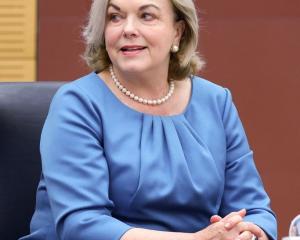In the past few days, deadly Islamic State-linked terror attacks have been carried out in France, Tunisia and Kuwait.
In Syria and Iraq, IS fighters continue their bloody offensive; one of the latest of the many casualties an Iraqi lieutenant-colonel based at Camp Taji, where New Zealand troops are stationed.
Other news in past days reflecting global instability have included headlines about the Middle East peace process, and an increasing tide of stories about boatloads of asylum seekers from Africa, the Middle East and the Indian subcontinent dying or being thwarted in their attempts to reach safe havens in the West.
While all this has been going on, the University of Otago at the weekend held its 50th annual Foreign Policy School.
Its focus was ''New Zealand and the World: Past, Present and Future''.
Given the above events and our connection with them, it seems a timely reminder that this little country at the ''bottom'' of the world is no longer the isolated island nation it once may have been.
Quite the opposite, in fact.
We are aligning ourselves with the ''big boys'' - forging closer ties with the United States and China, are involved in the Trans Pacific Partnership trade negotiations, signed up to the Five Eyes intelligence alliance, playing a part in the evolving war on terror, and have finally attained a long-desired seat at the ''top table'' as part of the United Nations Security Council.
While some claim the country ''lost its innocence'' at Gallipoli 100 years ago, we have arguably remained somewhat naive as a nation.
This has been an asset and a protection but, as we negotiate the realities of being a global citizen in the 21st century, with the potential to influence world events and be affected by them, it could be a major weakness.
One of the messages to emerge from the discussion at the Foreign Policy School was about the challenges that face our country as we balance the often conflicting demands of our new friends in relation to trade and security, and, as a peace-loving nation, our peacekeeping role and military presence.
Prime Minister John Key is making much of our sovereignty as he persuades the nation the time is ripe to consider a new flag free from the colonial shackles of Mother England.
He and Foreign Affairs Minister Murray McCully played up our independent voice for small nations in their bid for our Security Council seat.
At the Foreign Policy School, Mr McCully talked of his desire to resume long-stalled Middle East peace talks with New Zealand as the council chair next month, saying solutions can be found ''more quickly and easily than most would think''.
The high-powered talk is admirable.
But is it realistic?
Do we really believe we can quickly engineer a solution to the longstanding and deep-rooted Israeli-Palestinian conflict where many others have failed?
And while we are busy talking the talk, are we actually walking the walk when it comes to the likes of the global refugee crisis, climate change, or the actions of our so-called ''peacekeeping'' forces?
Do the clean, green labels we sell to the world accurately reflect our environment and our products?
If we are banking on our good name to influence others, are our actions in attaining trade deals the results of influence and manipulation or are they fair and ethical?
The focus of the Foreign Policy School is to allow for ''informed consideration of NZ's independent foreign policy''.
To many onlookers, it would seem some of the most pressing considerations are over image and reality, honesty and transparency, how we sell ourselves to others and what we tell ourselves.
For our labels of a safe, beautiful, diverse, tolerant, open, independent and egalitarian society seem somewhat at odds with the creeping erosion of the Fourth Estate, ''secret'' global negotiations and alliances, and the aforementioned actions.
It would be timely to consider whether our foreign policy is based on trade-offs or sellouts, whether that is good for us, and whether our global footprint is, in fact, a positive one for other nations, as well.












